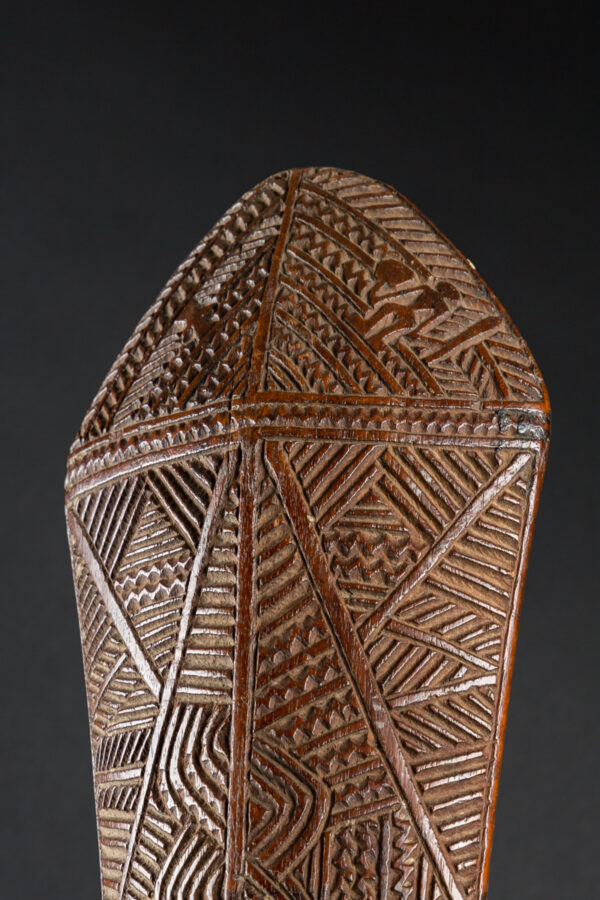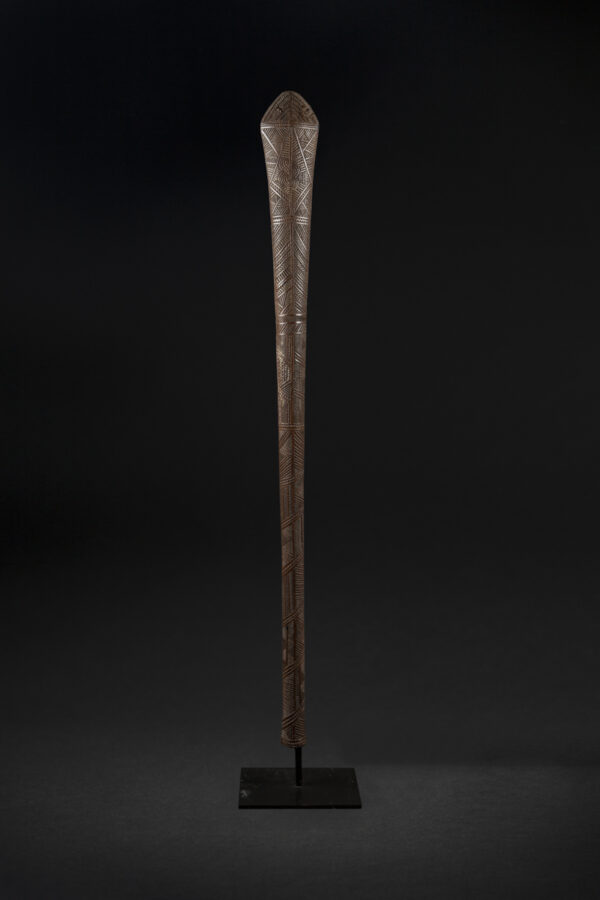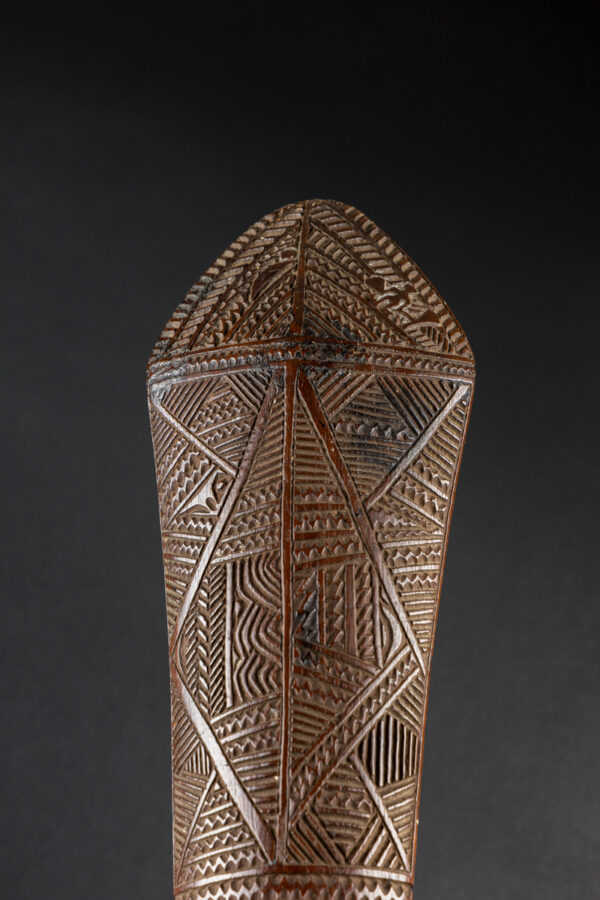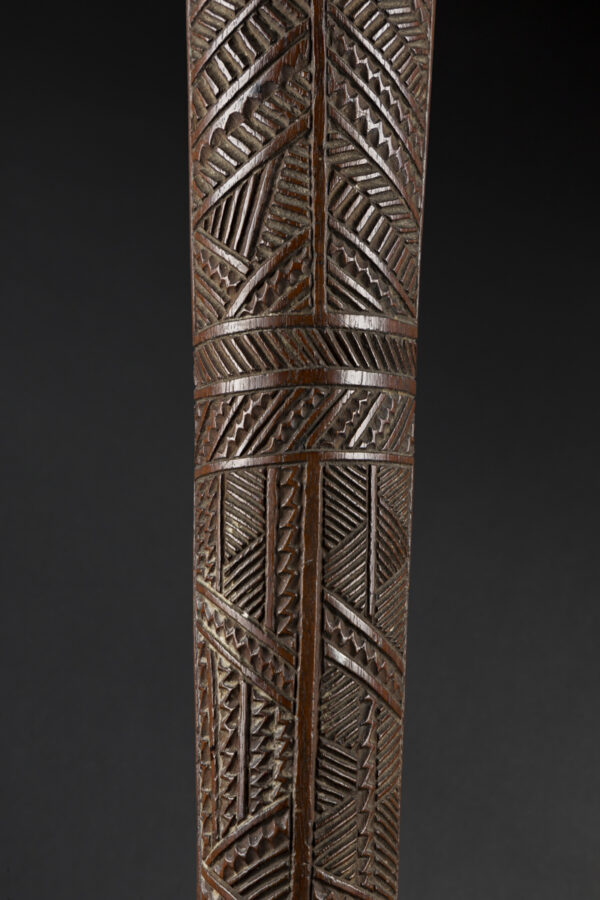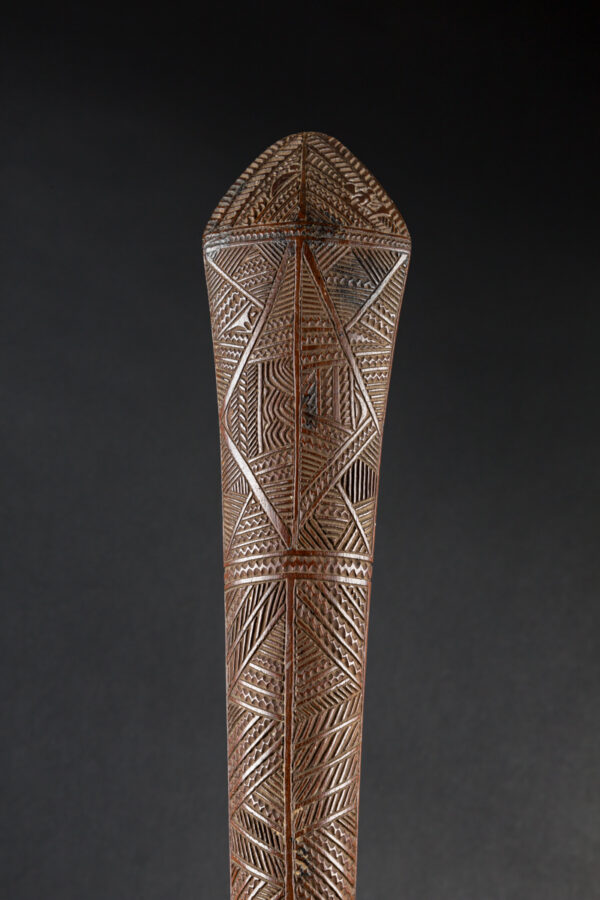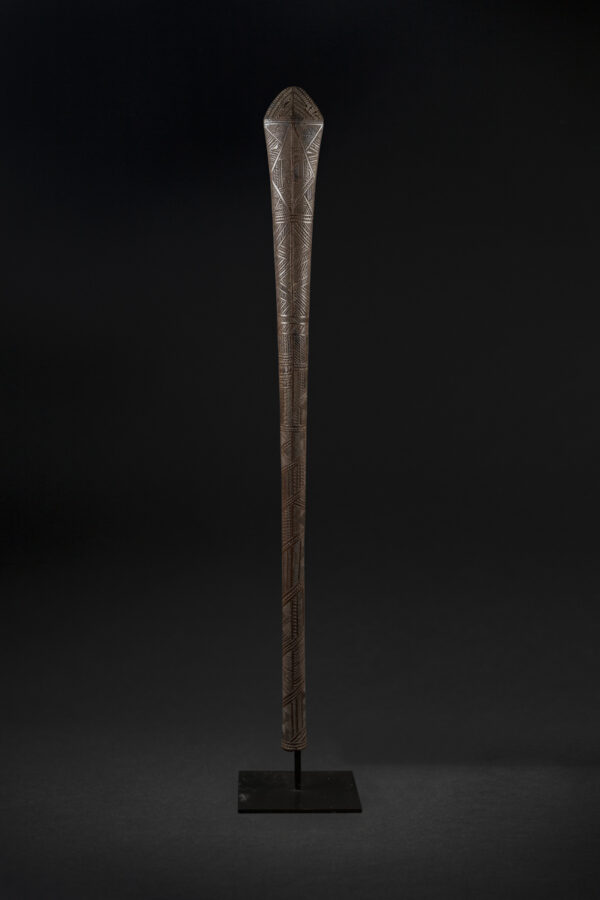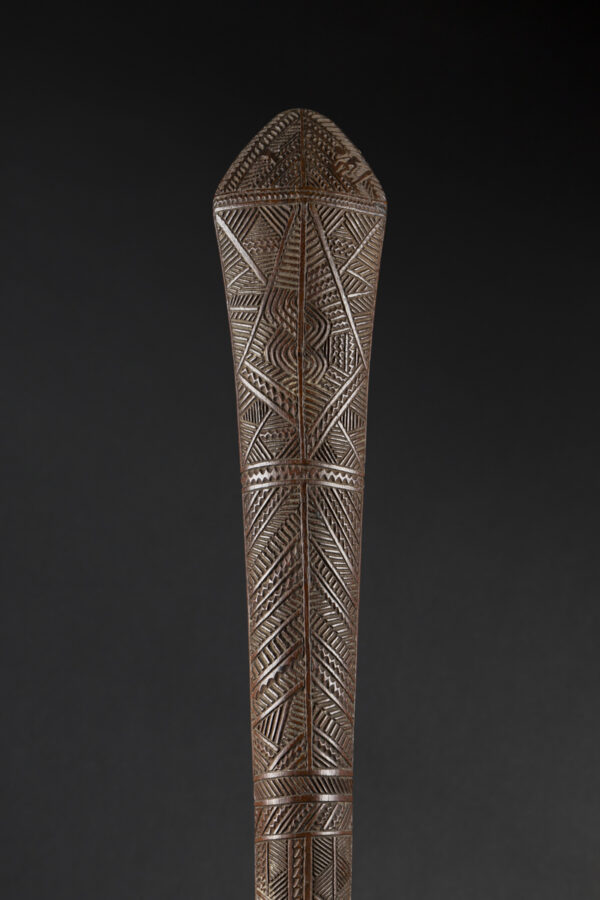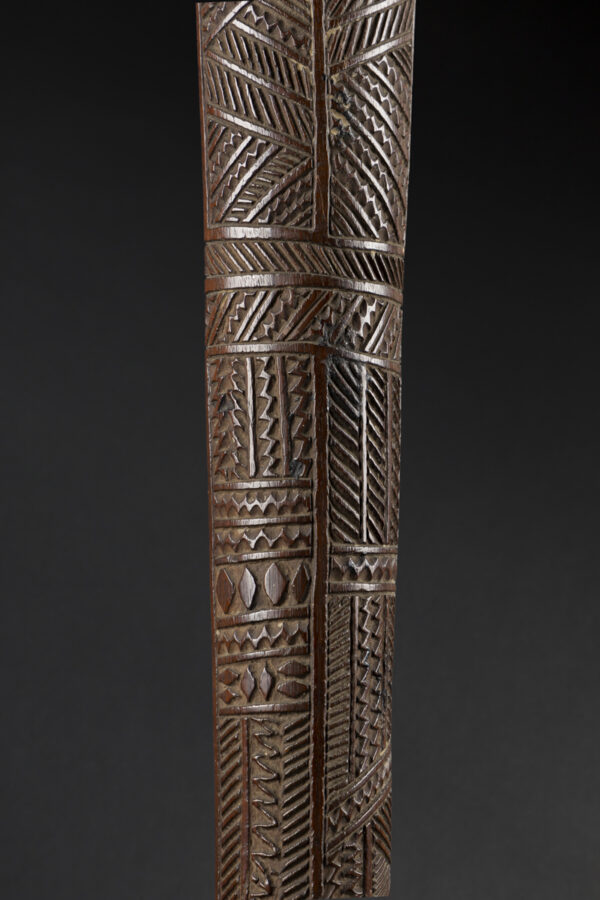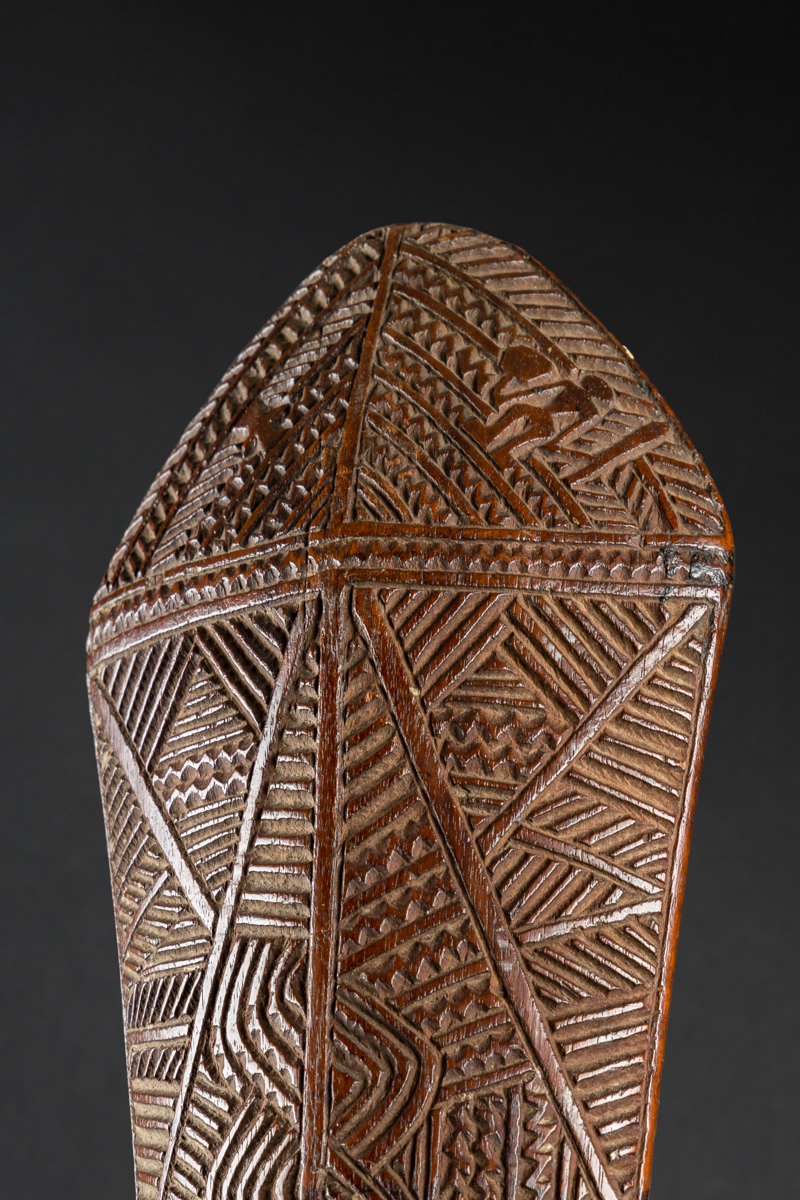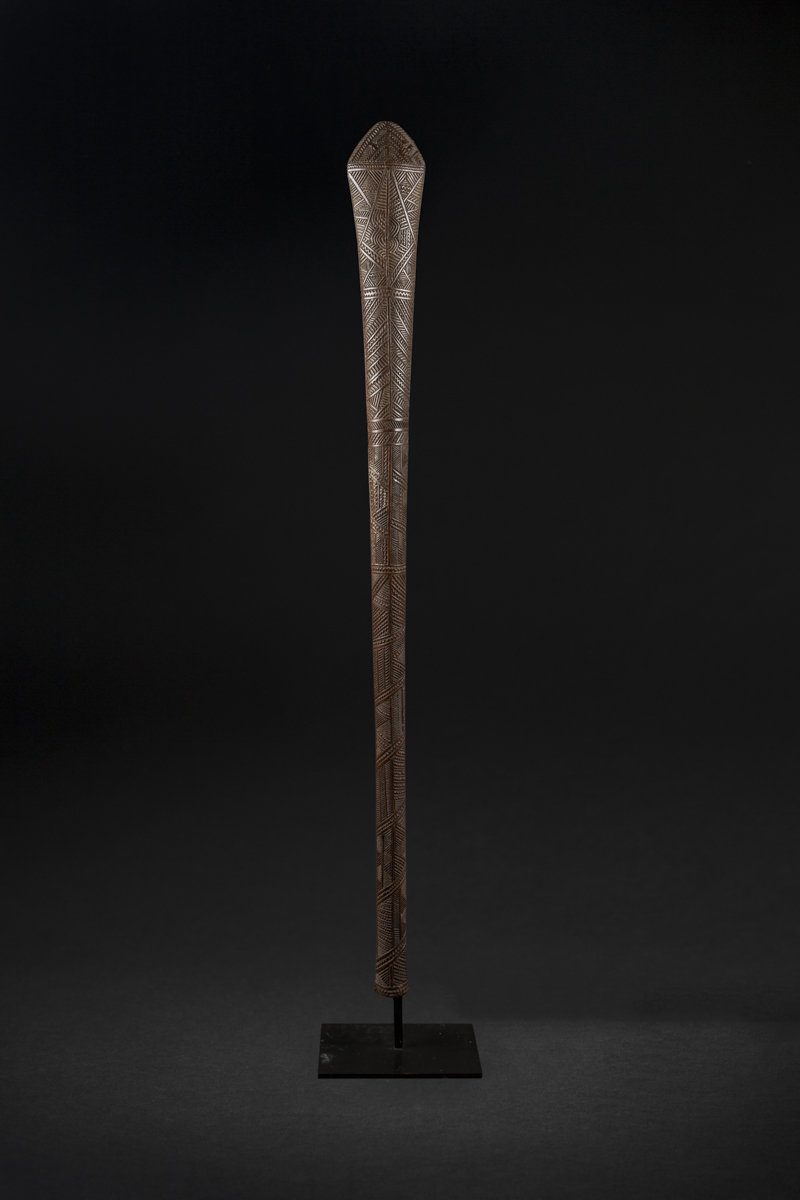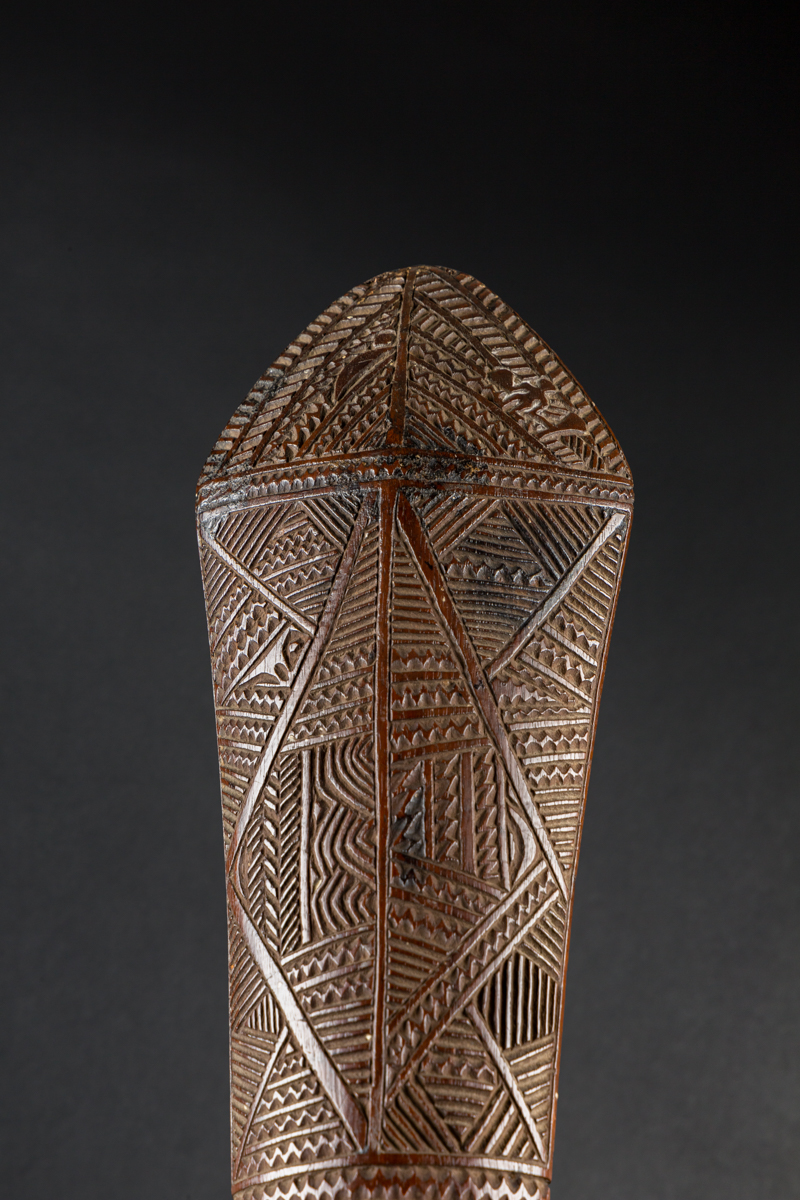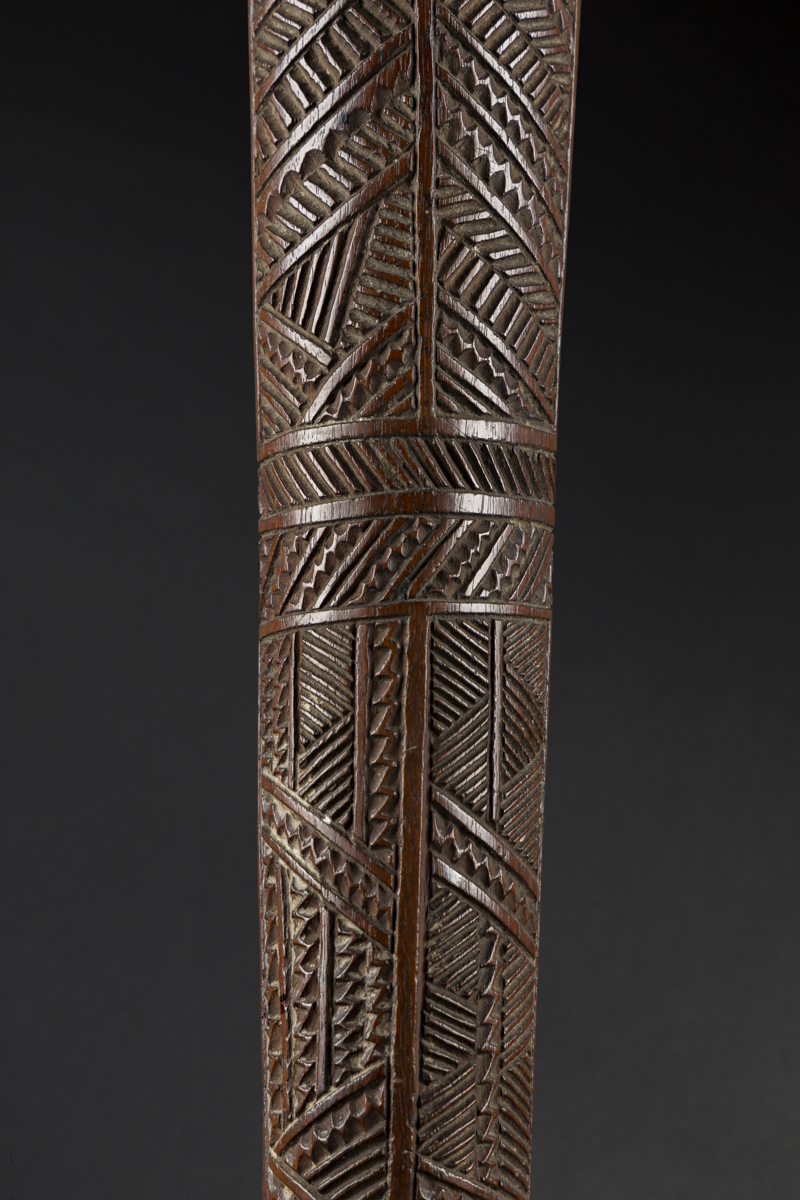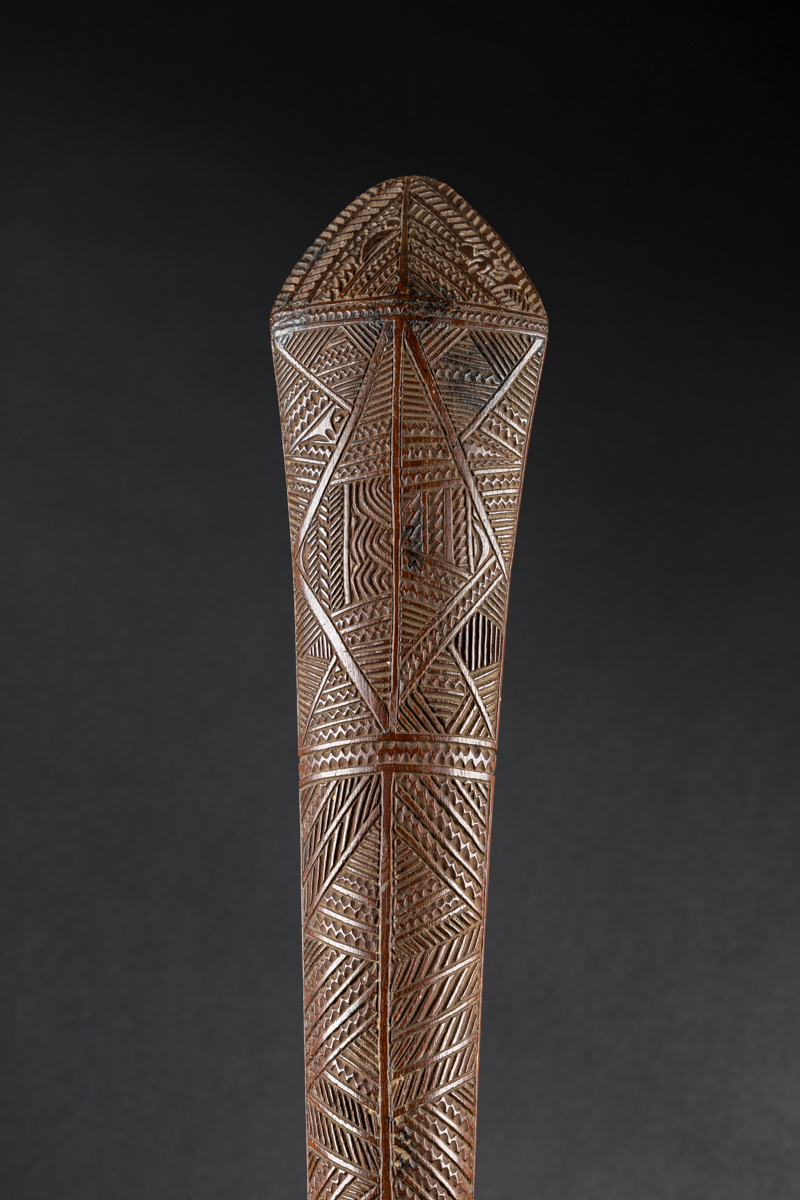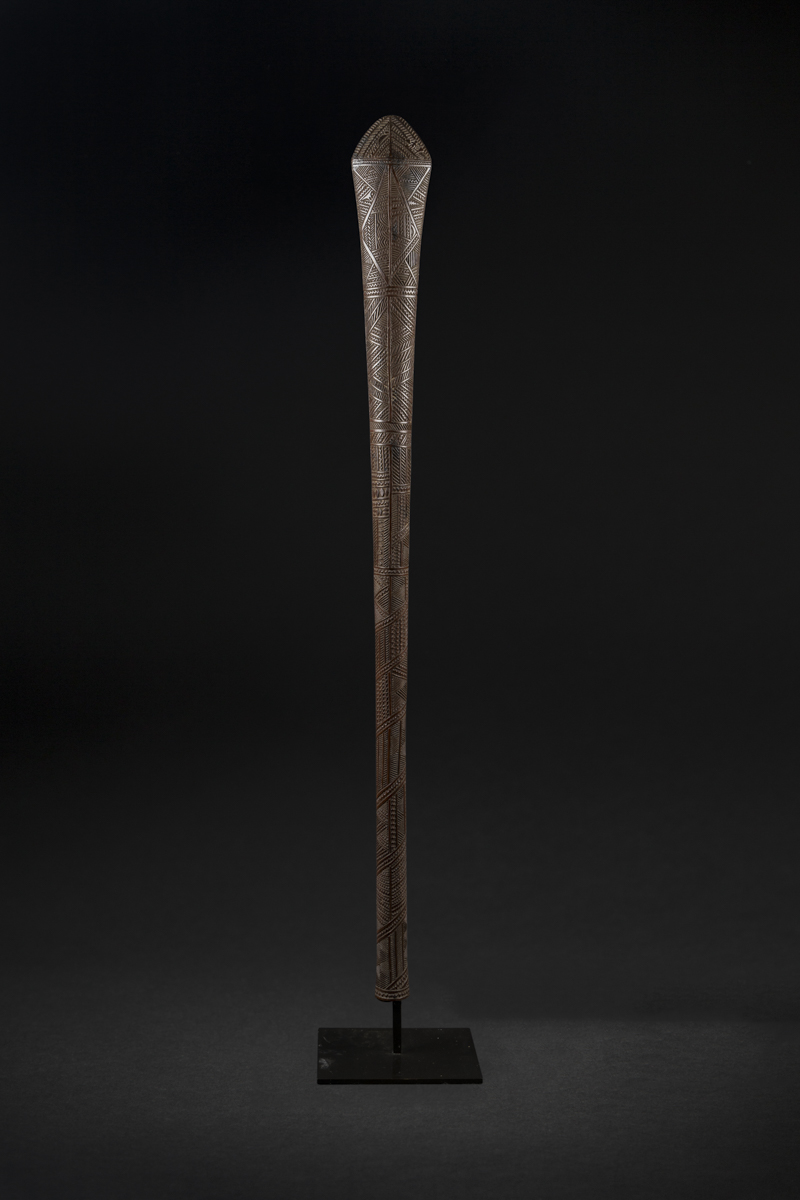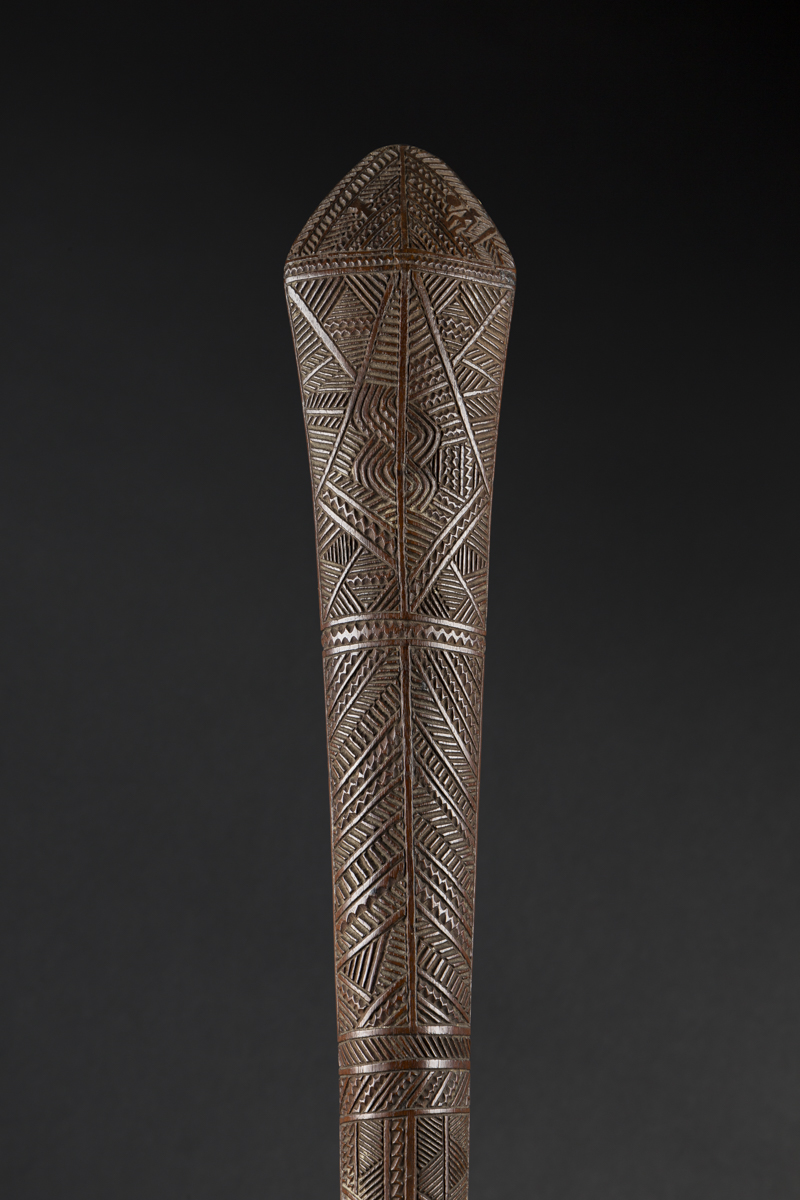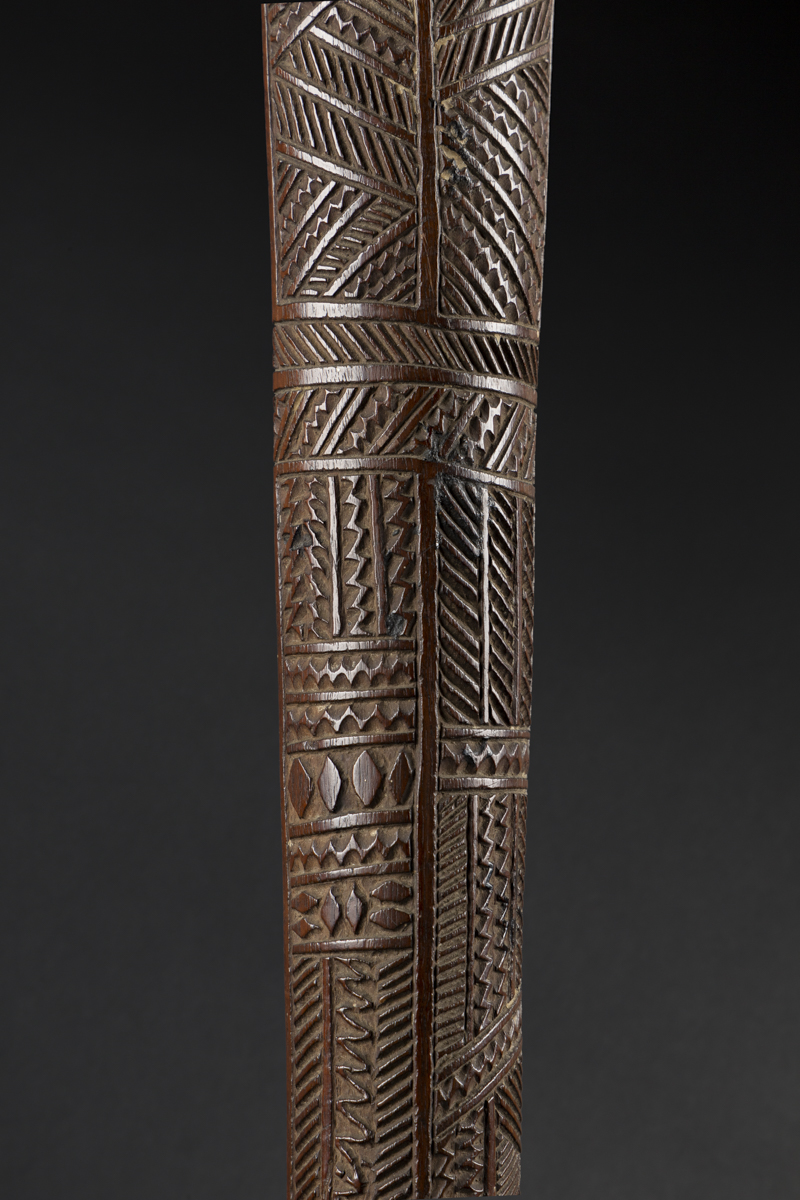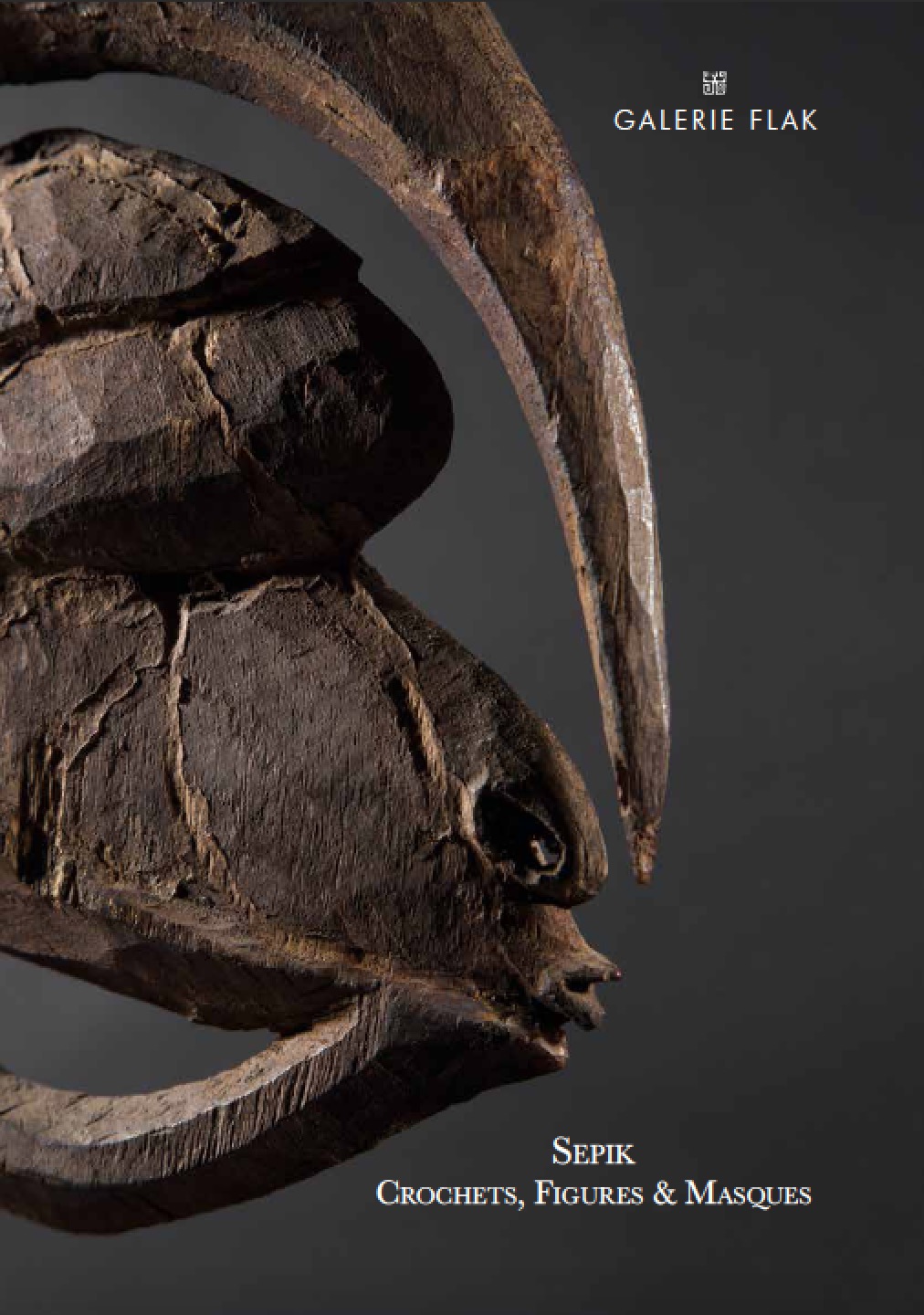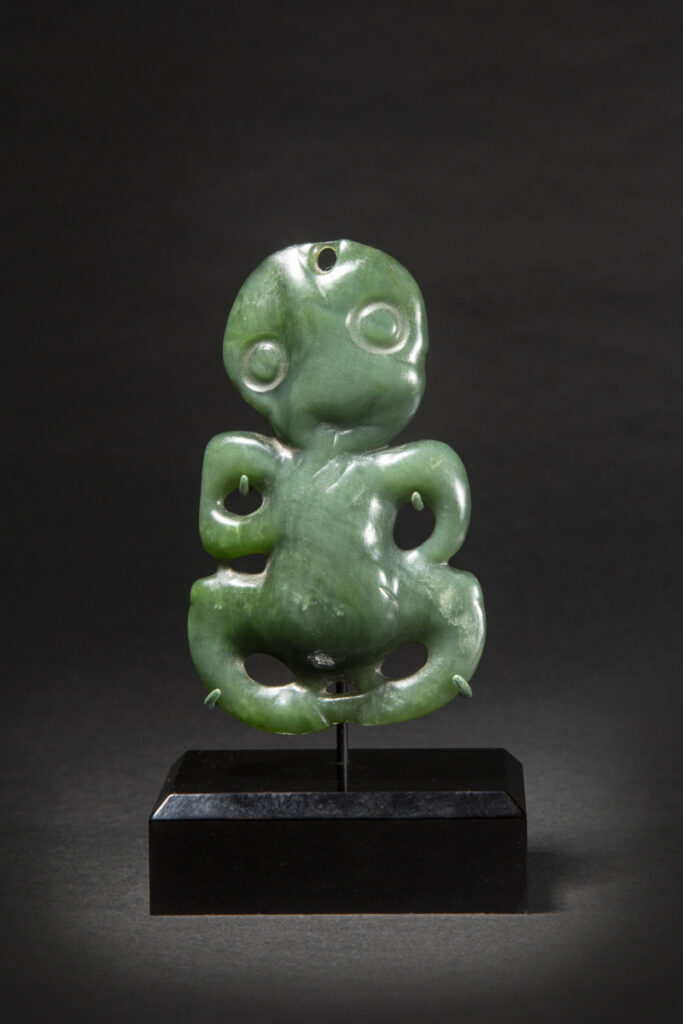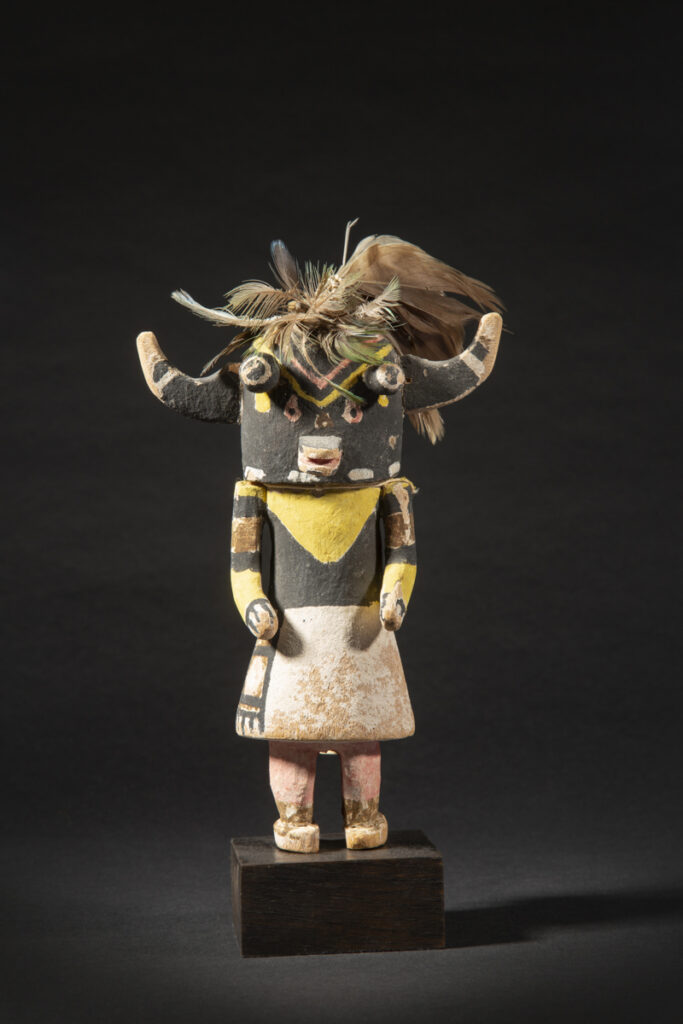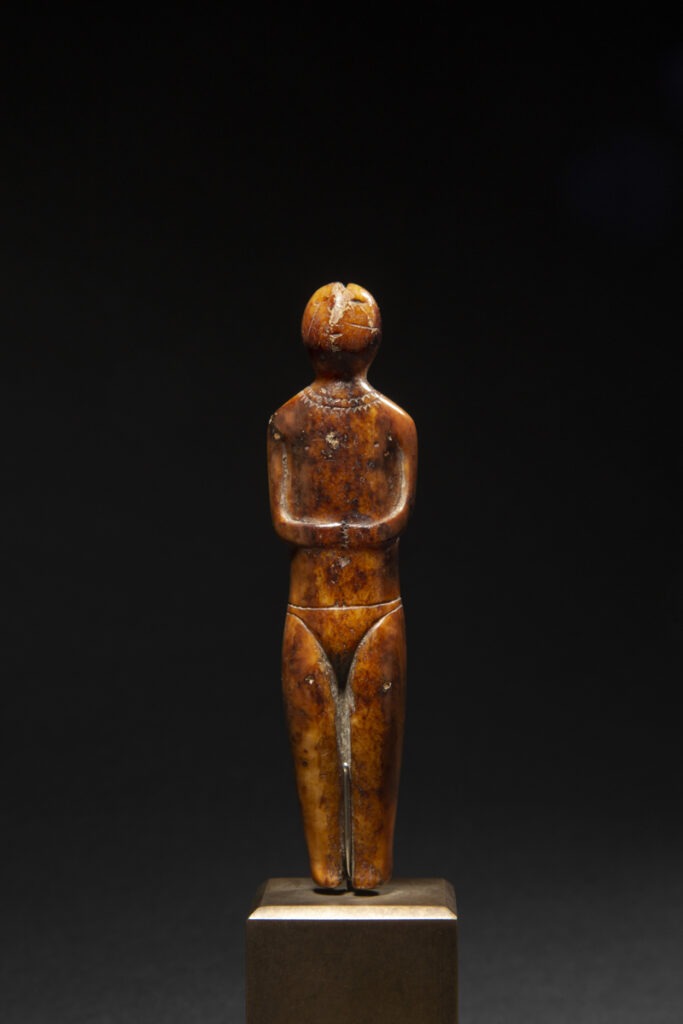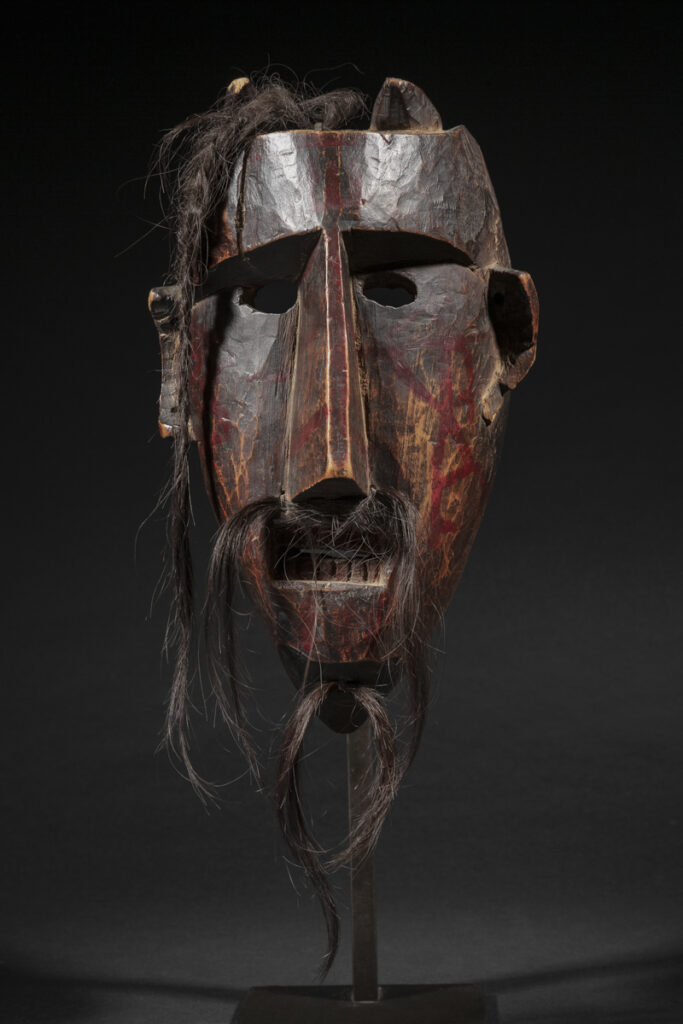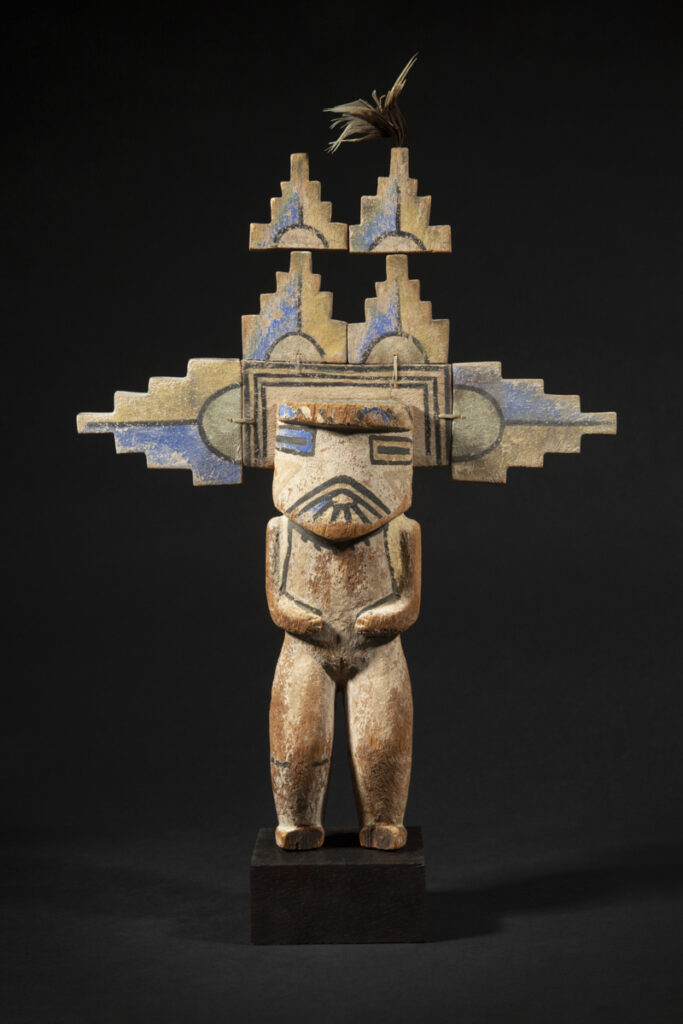oceania | Tonga Islands
Moungalaulau
war club
Tonga Islands
War club with 8 glyphs including two large human figures
Carved wood (ironwood)
19th century
Height: 38 in. (96.5 cm)
Ex private collection, UK
Moungalaulau Tonga war club 96.5 cm / Galerie Flak
Price on request
War was at the center of human activities in the South Pacific (Fiji, Tonga, and throughout Polynesia). Battles served to reinforce the authority of chiefs as well as to multiply ties between different groups of allies.
War clubs conferred prestige on their owners and were proof of their status as warriors. War clubs – the most precious possessions of warriors – evidenced exceptional sophistication and refinement in their sculpture and ornamentation.
War clubs are imbued with mana, the sacred power of the Polynesians. The surface decoration, unique to each club, granted supernatural powers to its owner. In recognition of these qualities, a warrior would typically give his club a specific name.
The most common material for Polynesian war clubs was ironwood (toa or ‘aito in Polynesian languages), a dense hard wood that could deliver powerful blows to the enemy without cracking and was unlikely to break at the shaft under the stress of fighting.
Before European contact, stone adzes and animal teeth were used to carve and decorate clubs and ceremonial paddles. After Captain James Cook’s Voyages and subsequent contacts with Western navigators starting in the late 18th century, nails and iron implements began replacing traditional tools. Thus, surface decoration became increasingly more extensive and elaborate.
The war club presented here is an exceptional example in terms of surface decoration and balance. Of note, an interesting mise en abyme since since some of the large symbols depict warrior figures carrying clubs.
War clubs conferred prestige on their owners and were proof of their status as warriors. War clubs – the most precious possessions of warriors – evidenced exceptional sophistication and refinement in their sculpture and ornamentation.
War clubs are imbued with mana, the sacred power of the Polynesians. The surface decoration, unique to each club, granted supernatural powers to its owner. In recognition of these qualities, a warrior would typically give his club a specific name.
The most common material for Polynesian war clubs was ironwood (toa or ‘aito in Polynesian languages), a dense hard wood that could deliver powerful blows to the enemy without cracking and was unlikely to break at the shaft under the stress of fighting.
Before European contact, stone adzes and animal teeth were used to carve and decorate clubs and ceremonial paddles. After Captain James Cook’s Voyages and subsequent contacts with Western navigators starting in the late 18th century, nails and iron implements began replacing traditional tools. Thus, surface decoration became increasingly more extensive and elaborate.
The war club presented here is an exceptional example in terms of surface decoration and balance. Of note, an interesting mise en abyme since since some of the large symbols depict warrior figures carrying clubs.
Publication
Explore the entire collection
